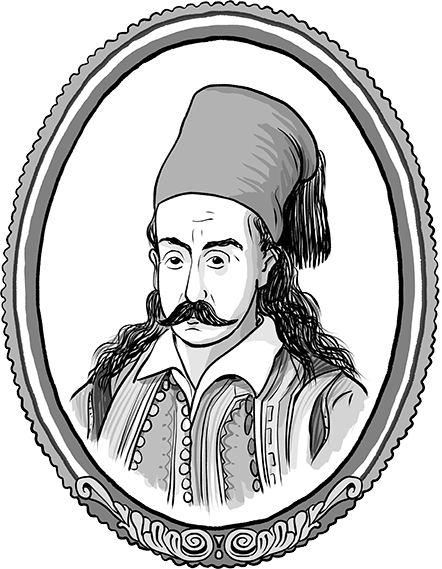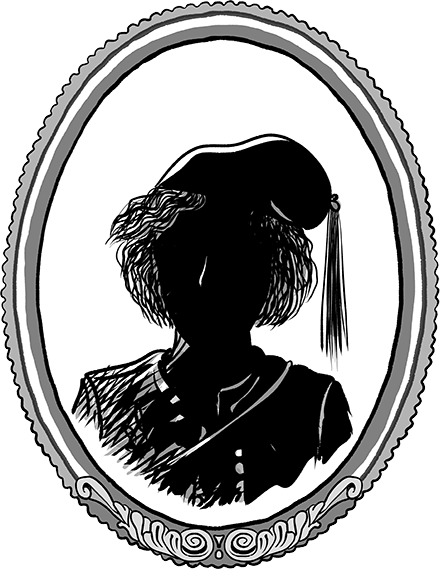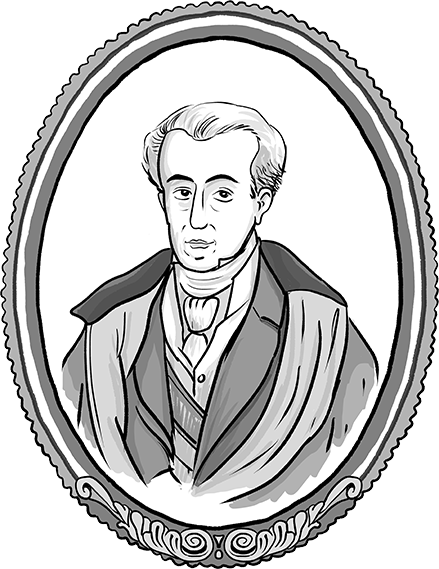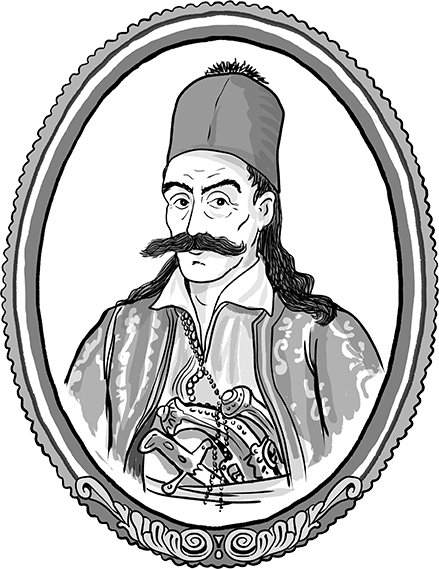


(Souli, 1790 – 1823): Chieftain from Souli. Son of Kitsos Botsaris, he accompanied his father to Corfu where he served in the military forces. During the attack on Ali Pasha by the Sultan’s army, he fought by his side. With the outbreak of the Revolution, he took part in many battles against the Turks and achieved some important victories. He was killed during a night raid on an enemy camp in Kefalovryso, Evritanias. He was buried in Messolonghi.

(Messolonghi, 1816 – Messolonghi 1900): Son of the leader of the defenders of Vasiladi, Anastasios Papaloukas. At the age of only 10, he found himself fighting in Vasiladi. An error of judgement caused the blowing up of the island’s powder magazine, resulting in the deaths and injuries of several men, as well as, due to lack of ammunition, the invasion of the island a few days later.

(Corfu, 1776 – Nafplion, 1831): The first governor of the new Greek state. Offspring of a Corfu aristocratic family, he soon emerged as an internationally acclaimed leading diplomat. As Minister of Foreign Affairs for Russia, he refused to take on the leadership of the Filiki Etairia. However, he defended the Revolution diplomatically and soon, being pressured to resign from the position of minister to the Russian tzar, he fled to Switzerland from where he coordinated all of Europe’s philhellenic organizations. In April 1827, he was voted first governor of Greece by the 3rd National Committee. In January 1828 he arrived in Nafplion and immediately took on the task of establishing the as yet non-existent state infrastructures. He came into conflict with local interests and personal ambitions which resulted in his murder.

(Mavromati Karditsa, 1782 – Faliro, 1827): An armatolos and chieftain from mainland Greece. Well-known for his defiant character and his proverbial swearing but gifted with military skills, Karaiskakis was the klepht Katsadonis’s henchman and later became a member of Ali Pasha’s guard. Without any particularly important action during the first two years of the Revolution, he gained his first great victory against enemy troops at the beginning of 1823. He took part in the conflicts in the civil wars. He distinguished himself in many battles in 1825 and in 1826 he was appointed Commander of Roumeli, with the aim of freeing mainland Greece. In April 1827, he was fatally injured in a confrontation with Kioutachis’s men during the siege of the Acropolis.
